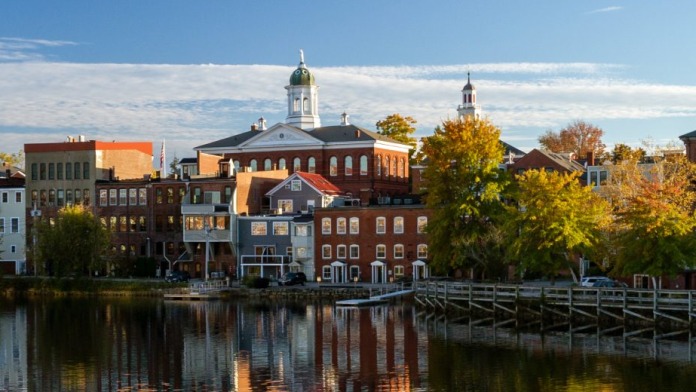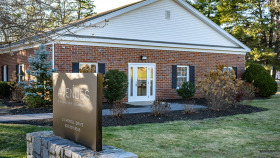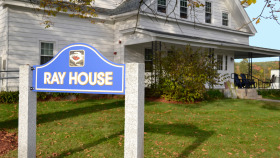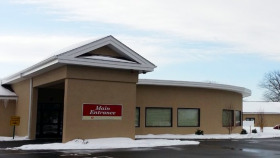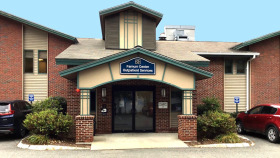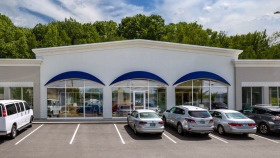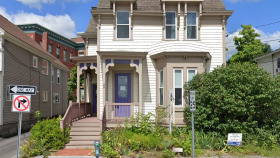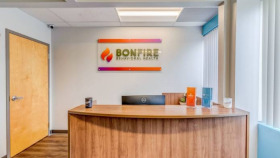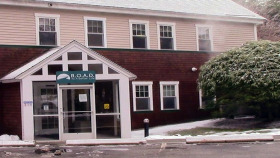Expert Insights
More frightening figures have been released showing that fentanyl still has a deadly grip on the state of New Hampshire. In fact, the most recent numbers show that 2022 was officially the worst year for overdose deaths in New Hampshire since 2017. There have been over 400 fatal overdoses in the state for the past nine years, but 2022 broke records.
There were a total of 434 overdose deaths during 2022, and in a majority of those fatal overdoses, fentanyl was found in the systems of the deceased. It’s worth pointing out that another 39 deaths could potentially be added to the total when the state receives the final toxicology test results. Since the drugs sold by dealers are more dangerous than ever,
~ Lesley Wirth
How Much Does Drug Rehab Cost in New Hampshire?
New Hampshire is ranked 42nd nationwide in terms of addiction treatment affordability, with an average cost of drug and alcohol rehab of $58,777 (without insurance).
- Medical detox is the most expensive, with an average cost of $144,907
- Long-term inpatient drug rehab in New Hampshire costs an average of $51,867
- Outpatient addiction treatment in New Hampshire costs an average of $8,618
- Outpatient methadone treatment is the most affordable, with an average cost of $7,657
The cost of drug and alcohol rehabs in New Hampshire will depend on a number of different factors:
Type of facility or detox center you choose
Which special amenities the facility has
The duration of your treatment
If the rehab is in your insurance plan’s network
Location of the program
How to Pay for Drug Rehab in New Hampshire
As of 2024, there were over 120 drug rehab facilities across the state of New Hampshire. These facilities accept several payment methods. Of those treatment facilities, the following numbers reflect how many accept their respective payment methods:
There are multiple ways to pay for the addiction treatment you need to create a new life. Here are a few ideas to think about.
Private Pay and Insurance
One of the best ways to pay for rehab is to use your health insurance coverage. Many health insurance plans have coverage for mental healthcare and addiction treatment. To ensure your insurance covers as much as possible, talk to the insurer to find out what rehab centers are in your plan’s provider network. Most insurance plans don’t cover treatment outside the network. Even if your plan does, it will cost you a lot more out of your own pocket.
Common health insurance companies in New Hampshire include:
- Aetna
- Cigna
- Harvard Pilgrim
- Ambetter
- Anthem Blue Cross Blue Shield
- Tufts Health Freedom
- United Healthcare
Medicaid
NH Medicaid is the state’s medical insurance program for those with lower incomes. The program pays for medical care including mental health and addiction treatment. NH Medicaid can pay some or all of the cost of residential, intensive outpatient and general outpatient treatment. You can also get coverage for medical detox and peer recovery support. NH Medicaid can cover medication assisted treatment if you’re struggling with alcohol or opioid misuse.
Medicare
Medicare is a national program that covers you if you’re 65 or older, permanently disabled or have specific health conditions. Private health insurance companies can offer Medicare Advantage plans which replace Original Medicare and may provide extra benefits. However, Medicare Advantage plans also have a provider network that you have to use, so keep that in mind when using your Medicare coverage for addiction treatment.
Military Insurance
If you bravely serve our country in the armed forces, thank you! You’ve experienced things civilians can never imagine. As a result you might struggle with mental health and/or substance use. Fortunately both TRICARE and VA insurance cover mental health and addiction treatment. You can get help by visiting a VA or military medical clinic and talking to the doctor about your struggles. You may be referred to residential or outpatient care, or medication assisted treatment, depending on your needs.
Tribal Funding and Programs
There aren’t specific tribal funding programs for Native Americans, but if you have a lower income you may qualify for NH Medicaid which can help you access addiction treatment for free or at a low cost. There are several treatment centers that have a specific focus on Native American culture and can offer culturally appropriate treatment, including Medicine Wheel and other approaches.
Other Low Cost Options
Many treatment centers have ways to make rehab more affordable. For example, some offer scholarships or are willing to set up a variety of payment plans to make it easier to pay for treatment. Other centers have a sliding scale of fees so that if you have a lower income, especially compared to your household size, you can pay less for treatment. You may also qualify for financial aid at a rehab. These options vary so be sure to talk to the treatment center for details.
Free Rehabs in New Hampshire
In New Hampshire, there are multiple free rehabs or low cost treatment centers. For example, over 100 treatment centers accept Medicaid. If you qualify for Medicaid you can often get free rehab treatment or pay very little out of your own pocket. Some rehabs also have a sliding scale of fees that let you pay far less depending on your household size and income.
Some free rehabs in New Hampshire let you work instead of paying for treatment. This can be a big benefit because you get work history and learn work related skills, which makes it much easier to find a job after rehab. Having a steady job helps you with housing and the other resources you need for long term recovery.
Free Addiction Treatment Resources in New Hampshire
If you’re looking for free resources to help you with substance use or recovery, there are a variety to consider.
Hope for New Hampshire Recovery
This center in Manchester, New Hampshire, is open six days a week. They offer peer support for people in recovery or looking for information about treatment. You can also get a weekly call to check on you and encourage your recovery. Best of all, they have an art program that allows you to express yourself through paintings, music and writing. They also have an art gallery where you can see the art of previous participants.
Granite Pathways
Based in Portsmouth, Granite Pathways has multiple programs that can help you. They offer peer support, help with employment and parenting support. There is also a community navigator that can help you connect with community resources and financial aid. Granite Pathways has clubhouses in several locations in Portsmouth that can help you build healthy relationships and maintain long term recovery.
New Hampshire Harm Reduction Coalition
If you’re not ready for treatment yet, you can still be safer. The Harm Reduction Coalition can help you find syringe service programs, testing for HIV and hepatitis, wound care, naloxone, fentanyl test strips and other resources. When you’re ready to stop using substances, the centers can also refer you to rehab centers and other recovery resources.
NCCarePath
If you need financial assistance, including access to free or low-cost addiction treatment, support as a caregiver or help with transportation or housing, NCCarePath can connect you to the appropriate agencies. You can also get services for loved ones that are older or disabled. To get started you can visit the website or call 1 (866) 634-9412. This is a great resource that can connect you with multiple services at one time.
The Doorway
The Doorway is a nonprofit organization that helps you access treatment. They can also connect you with recovery housing, peer support and help getting a job. The organization recommends you call 211 to get started, which connects you to statewide social services. The Doorway has regional offices and is no more than an hour away from most New Hampshire locations.
New Hampshire Alcohol and Drug Use Statistics
According to the Substance Abuse and Mental Health Service Administration, 9,576 people received drug and alcohol rehab in New Hampshire in 2020.2 Statistics from national surveys in 2019 and 2020 showed that among people 18 years or older in New Hampshire:1

Close to 16% reported use of illicit drugs in the past month.
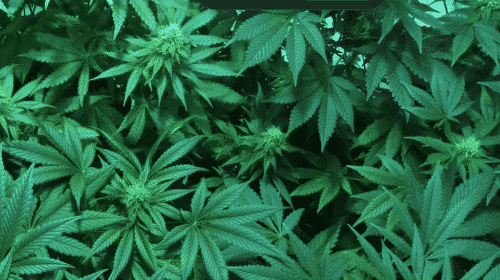
About 22% reported past-year marijuana use.

Approximately 63% reported past-month alcohol use.

About 27% reported past-month binge alcohol use.
People between ages of 12 and 17 in New Hampshire, statistics from 2019 and 2020 showed that:1
Almost 10% reported use of illicit drugs in the past month.
Close to 15% reported past-year marijuana use.
Just over 1% reported past-year prescription pain reliever misuse.
Nearly 12% reported past-month alcohol use.
Drug Laws in New Hampshire
Drug laws vary from state to state, so it’s important to understand what drug laws are specifically in New Hampshire. Here are a few to keep in mind.
Marijuana Laws
In New Hampshire, marijuana possession is illegal except for medical marijuana. For those 18 and older who have less than ¾ of an ounce of marijuana, they will face a civil violation and fine for the first or second offense. Having more than that amount is a misdemeanor that can get you up to a year in jail along with a fine. If you’re found with enough to be charged with intent to sell you’ll be charged with a felony that can result in multiple years in jail, even for the first offense.
Good Samaritan Law
The Good Samaritan law protects you if you witness an overdose and call for medical help or try to administer medical help, including naloxone (Narcan). If authorities come to the scene, New Hampshire’s law provides immunity from arrest or prosecution for possessing controlled substances. This law is intended to encourage those who witness an overdose to call for help without being afraid of getting in trouble.
DUI Laws in New Hampshire
Like many states, New Hampshire has an implied consent law, which means that if you have a driver’s license you consent to a breath or blood test for blood alcohol content. If you refuse, your license is automatically suspended and you are charged a fine. The blood alcohol limit for those 21 and older is 0.08%, with aggravated charges for 0.16% or higher. The zero tolerance law for those under 21 has a BAC limit of 0.02%.
Drug Testing in New Hampshire
There are no laws that limit an employer’s right to drug test in New Hampshire. The federal Drug Free Workplace law establishes the right to drug test at any time and make employment decisions based on the test. This is complicated by the fact that medical marijuana is legal in New Hampshire. The fact that marijuana use is still illegal on a federal level and that the ADA does not include medical marijuana means that if you test positive for marijuana, you can face adverse consequences even if you have a prescription for medical marijuana.
Resources
- New Hampshire Population 2021 (Demographics, Maps, Graphs). (n.d.). Worldpopulationreview.com.
- Drug Environment Report-UNCLASSIFIED (n.d.). Overview Drug Overdose Deaths Drug Overdose Deaths Map
- FindTreatment.gov. (n.d.). FindTreatment.gov.
- Substance Abuse and Mental Health Administration Services. (n.d.). Table of Contents.
- Substance Abuse and Mental Health Services Administration, National Survey of Substance Abuse Treatment Services. (2020). Data on Substance Abuse Treatment Facilities.
- Peterson, C., Li, M., Xu, L., Mikosz, C. A., & Luo, F. (2021). Assessment of Annual Cost of Substance Use Disorder in US Hospitals. JAMA Network Open, 4(3), e210242.
- Kelly, J. F., Humphreys, K., & Ferri, M. (2020). Alcoholics Anonymous and other 12-step programs for alcohol use disorder. The Cochrane Database of Systematic Reviews, 3(3), CD012880.
- Mericle, A. A., Karriker-Jaffe, K., Patterson, D., Mahoney, E., Cooperman, L., & Polcin, D. L. (2020). Recovery in context: Sober living houses and the ecology of recovery. Journal of Community Psychology, 48(8), 2589–2607.
- State of New Hampshire Department of Health & Human Services. (2022). Medicaid.
- CMS.gov. (n.d.). The Mental Health Parity and Addiction Equity Act (MHPAEA).
- State of New Hampshire Department of Health & Human Services. (2022, March 20). New Hampshire Bureau of Family Assistance (BFA) Program Fact Sheet.
- Medicare.gov. (n.d.). Parts of Medicare.
- American Medical Association. (2021). Competition in Health Insurance: A comprehensive study of U.S. markets.
- Findtreatment. gov. (n.d.). Searching for Treatment Options.
- Substance Abuse and Mental Health Services Administration (US); Office of the Surgeon General (US). (2016). Facing Addiction in America: The Surgeon General’s Report on Alcohol, Drugs, and Health [Internet]. Washington (DC): US Department of Health and Human Services.
- Grim, B. J., & Grim, M. E. (2019). Belief, Behavior, and Belonging: How Faith is Indispensable in Preventing and Recovering from Substance Abuse. Journal of Religion and Health, 58(5), 1713–1750.
- Vice.com. (2022). Inside the Drug Rehab for the World’s Super Rich
- Fortune.com (2015). Where do CEOs with addictions go when they hit bottom?
- Marchand, K., Beaumont, S., Westfall, J., MacDonald, S., Harrison, S., Marsh, D. C., Schechter, M. T., & Oviedo-Joekes, E. (2019). Conceptualizing patient-centered care for substance use disorder treatment: Findings from a systematic scoping review. Substance Abuse Treatment, Prevention, and Policy, 14(1), 37.
- Substance Abuse and Mental Health Services Administration. (2022). Medication-assisted Treatment.
- Mystic Media. (2022). New Hampshire.
- New Hampshire Department of Health & Human Services. (n.d.). New Hampshire’s Good Samaritan Law (Drug Overdoses).
- Office of the NH drug Offender Program. (n.d.). New Hampshire Adult Drug Court Policies & Procedures.
- New Hampshire Insurance Department. (2015, November 25). The Insurance Department’s Focus on Substance Use Disorder Coverage.

